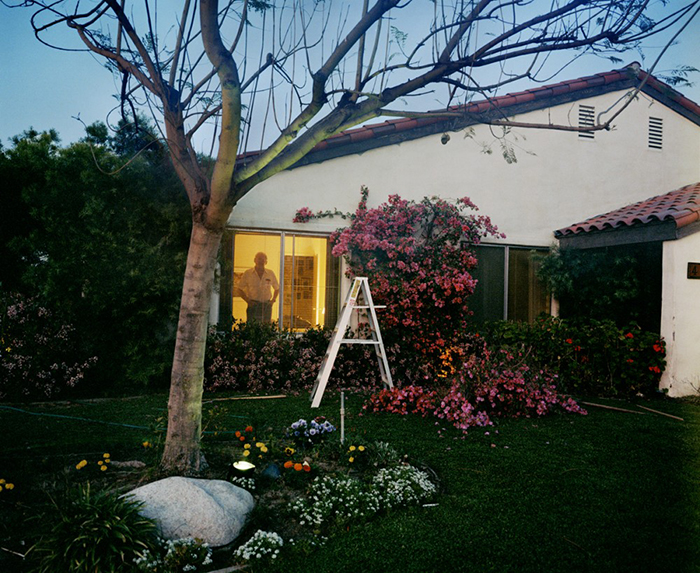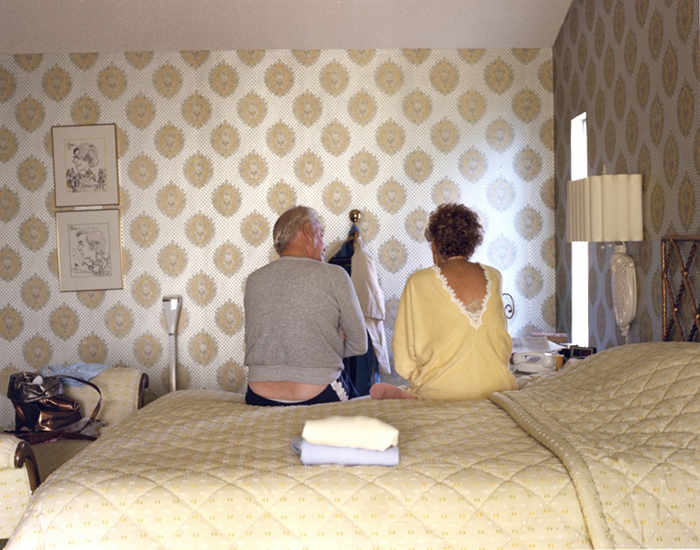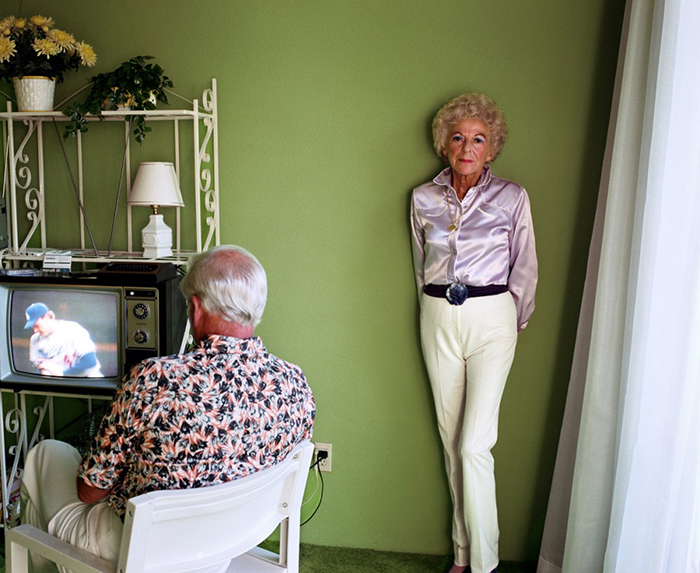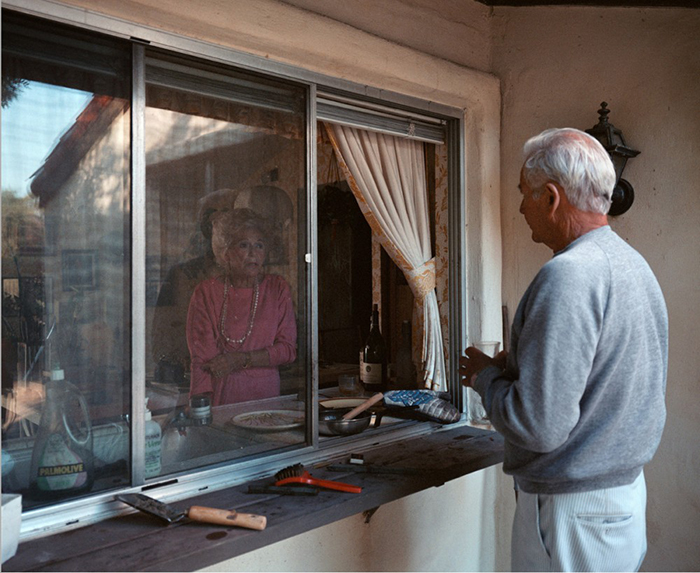Pictures from Home by Larry Sultan and Drum by Krass Clement, selected by Colin Pantall
Pictures from Home by Larry Sultan (Harry N Abrams; First printing edition, 1992), BUY
Pictures from Home by Larry Sultan is a complex book. It combines words and text, it tells you about family, about history, about photography. It does it with such apparent ease that you forget how complex a book it is. There are different kinds of pictures in the book; family snaps, stills from home movies and corporate images all tied in with Larry Sultan’s large-format images of his elderly parents.
The text comes via Sultan, his mother and his father so there are three voices; they’re not the same voice. They argue and quibble and dispute over who and what this family is. Words are had about fidelity, career, photography and love, all against a background of images that are repeatedly brought into question. Where do these pictures come from, why do we make them, what does it mean – this family, this photography, this love?
These voices frame the images in Pictures from Home so that they are part of family, corporate and social history, all wrapped up in the broader narrative of the American move west and the age of consumption and the individual. It’s done beautifully, and it’s done dramatically with an edge that moves from anger and annoyance to affection and love.
Drum by Krass Clement (Errata Editions, 2012), BUY
Drum by Krass Clement is diametrically opposed to Pictures from Home. Shot on 3 and a half rolls of film and several pints of Guiness, it’s as far from Larry Sultan’s multi-vocal masterclass as you could hope to see. The book starts on the country roads of rural Ireland, then in the pub with a bunch of rural Irishmen. They sit, they drink and they talk. All except one man, the man that Clement stalks with his Leica across the evening. This man sits alone, his eyes cast into the middle distance; to the floor, the ceiling, to anywhere they won’t be met. His back turns this way and that, always away and he stares rheumy-eyed into places where his gaze won’t be found. It’s the most cinematic of books and it has a leading man who is a study of loneliness. It’s heartbreaking.









